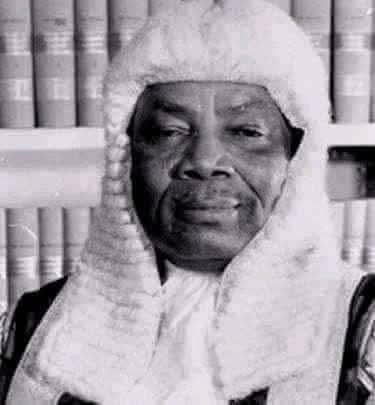Late Justice Ayo Gabriel Irikefe (1922–1996), former Chief Justice of Nigeria, is remembered as one of the nation’s most principled jurists, a man whose courtroom decisions reflected an unwavering commitment to fairness, truth, and the rule of law.
Among his many notable rulings was his landmark judgment in the case of Osadolor, popularly known as “Afro”, who was accused of armed robbery. In a bold and meticulous decision, Justice Irikefe acquitted the defendant after finding that the prosecution had failed to prove its case beyond reasonable doubt.
According to court records, Afro’s alleged offence stemmed from an incident involving a truck accident, which caused him personal losses. Justice Irikefe concluded that Afro’s actions were acts of self-help to recover damages not robbery.
His ruling underscored a defining principle of criminal law: that no person should be convicted unless guilt is established beyond reasonable doubt.

This judgment, widely studied in Nigerian legal circles, demonstrated Irikefe’s insistence on justice grounded in evidence rather than public sentiment or prosecutorial pressure.
Born in 1922, Justice Irikefe initially pursued Marine Engineering and Communications in Manchester before switching to law in 1949 a decision that would shape his distinguished career.
He served as Attorney General of the Mid-Western State in 1966 and was later appointed a Justice of the Supreme Court of Nigeria.
In 1975, he chaired the Panel on State Creation, and in 1980, he led the Crude Oil Sales Tribunal, which investigated allegations of petroleum fund mismanagement.
His elevation to Chief Justice of Nigeria in 1985 marked the pinnacle of a career defined by legal excellence and moral integrity.

Justice Irikefe retired in 1987 at the age of 65, leaving behind a legacy of deep legal scholarship, impartiality, and devotion to the cause of justice.
His life remains a testament to the power of fairness and the enduring responsibility of the judiciary to protect the innocent.









